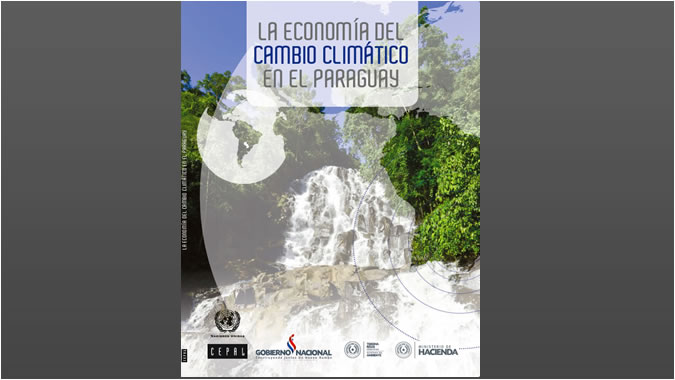Climate Change Will Have Significant Impacts on Paraguay’s Economy
Work area(s)
Topic(s)
By the end of this century the country could be losing 2% of its gross domestic product annually.

Paraguay is very vulnerable to climate change because of its heavy dependence on commodities production and because its infrastructure, logistical capacity and services sector are still in development, according to a study by the Economic Commission for Latin America and the Caribbean (ECLAC).
The report The Economics of Climate Change in Paraguay (in Spanish only), which was presented in Asuncion this Thursday, November 20, evaluates the phenomenon’s potential impact on the agricultural and livestock sectors, health, water resources and biodiversity.
According to the study, the total cost of climate change on the economy is estimated at between $14.3 billion and $80.2 billion dollars, in the case of a continuous increase in the average temperature equivalent to 4.2 degrees Celsius by 2100 (this is the A2 scenario in the study), and between $9.7 billion and $50.5 billion dollars in the case of a 3.4 degree rise in the temperature over the same period (B2 scenario). By the end of this century Paraguay could be losing 2% of its gross domestic product annually.
The document, prepared by ECLAC at the request of the Paraguayan government, adds that the country’s economy is very dependent on the agricultural and livestock sectors, which are concentrated in few activities and highly vulnerable to climate change. That said, the effects will differ in intensity depending on the specific sector.
For example, in the case of business agriculture, in both climate scenarios there should be an initial period of higher productivity, which will decline considerably later, above all in the case of soybeans. In terms of family agriculture, productivity levels would register notable declines from the start of the period under analysis, which could have significant social effects, mainly in the rural sector.
In the health sector, the effect would differ depending on the disease being contemplated, including dengue, malaria, diarrheic illnesses and severe respiratory infections.
With regard to water resources, the overall availability of water throughout the nation’s territory would not be affected, but there would be some seasonal variations and specific impacts in the northern and central Chaco regions. However, the combination of rising temperatures with more prolonged drought periods could cause serious problems, along with greater variability in precipitation.
Meanwhile, the impact of climate change on biological diversity could be significant, although the effects on fauna and flora are generally very complex and difficult to forecast, the study warns. Some species could benefit but others would become extinct, especially those that have a limited range of distribution.
At the same time, with variations in different regions of the country, conditions of extreme drought would intensify, particularly in the B2 scenario and up until mid-century, while, in contrast, flooding would likely increase starting in 2070.
The document points to the importance of adopting adaptation measures and expanding those already in place, considering that these impacts will increase over time.
The document was presented during the PRECOP Paraguay 2014 event held at Paraguay’s Congress, with the participation of the Environment Secretariat Minister María Cristina Morales Palarea and the Director of the National Office of Climate Change, Jesús Riquelme, among other local authorities. ECLAC was represented by Carlos de Miguel, head of the Public Policies for Sustainable Development Unit of the Sustainable Development and Human Settlements Division of this United Nations regional commission.